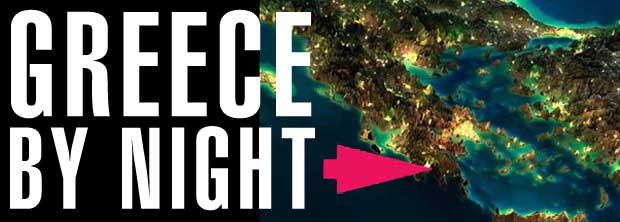Timeline of the Politcal Party SYRIZA in Greece

SYRIZA, an acronym for the "Coalition of the Radical Left" (Συνασπισμός Ριζοσπαστικής Αριστεράς) in Greek, is a left-wing political party in Greece.
Last Updated October 28, 2025
Timeline of SYRIZA – significant events and milestones:
-
2004: SYRIZA was founded as an alliance of thirteen left-wing parties, social movements, and radical groups. Its initial goal was to provide a unified platform for left-wing politics in Greece, with a focus on social justice, anti-corruption, workers' rights, labor law, church–state separation and progressive policies.
The most well known of the smaller groups that joined together to help form SYRIZA:
-
2012: SYRIZA gained important popular weight during the Greek legislative elections of 2012, amid the country's financial crisis and in opposition to the austerity measures with a position of anti-austerity and a new debt policy, for example, pushing for renegotiating bailout terms, easing fiscal targets, opposing deep cuts and rapid privatizations.
In the May 2012 election, the party won 16.8% of the vote and became the main opposition party, overtaking PASOK (Panhellenic Socialist Movement). In the June parliamentary election SYRIZA secured about 26.9 % of the vote and 71 seats, meanwhile PASOK dropped to about 12.3 % and 33 seats.
-
January 2015: With the snap legislative election, SYRIZA won a decisive victory, securing 36.3% of the vote and 149 seats in the Hellenic Parliament. The party formed a coalition government with the right-wing Independent Greeks (ANEL) party and SYRIZA leader Alexis Tsipras was sworn in as Prime Minister of Greece.
- March 2025: The heat was turning up on the "yes" and "no" of Greek leadership as the terms of the bail-out and loans were being sorted out. (For example see the news items on this page, March 2012).
-
July 2015: Amid ongoing negotiations with Greece's creditors, European Union and IMF, Tsipras called for a referendum on the bailout terms proposed by the creditors. The referendum took place on July 5, 2015 with a clear popular vote of OXI against the measures, but nonetheless, with intense pressure building that could have pushed Greece off the Euro and back onto the Drachma with a feared approx. 50% devaluation to follow, Tsipras agreed to a new bailout deal with additional (unpopular) austerity measures.
This brought about an internal split within SYRIZA, in particular with an opposition led by Panagiotis Lafazanis (then Minister of Energy). He argued that Greece must obtain economic sovereignty and return to the Drachma. Tsipras saw the threat of destabilization as too great if the country left the Euro. Eventually, Lafazanis and others left SYRIZA to form the new party Popular Unity (Λαϊκή Ενότητα) in August 2015, with a platform of "Grexit" and a return to the drachma. -
September 2015: Following the bailout agreement, Tsipras resigned as Prime Minister and called for a snap election. SYRIZA won the election with 35.5% of the vote, and Tsipras formed another coalition government with the right-leaning ANEL Independent Greeks led by Panos Kammenos, a former defense minister with new Democracy.
-
2019: In the European Parliament election and then local elections held in May, SYRIZA lost significant support to center-right New Democracy. Tsipras called for a snap election in July 2019 which brought about a loss, securing 31.5% of the vote and 86 seats in Parliament. New Democracy, with 158 seats, formed a new government, and SYRIZA returned to the role of the main opposition party.
-
2020 – As the main opposition to New Democracy, SYRIZA reorganized and played a role as a strong opponent against ND's pandemic policies.
-
2021 – The party continued reconsolidation under Alexis Tsipras. SYRIZA attacked government reshuffles and COVID policy.
-
2022 – Internal elections in May expanded member participation and cemented Tsipras’s continued leadership with national elections just ahead.
-
2023 – Major electoral setbacks for SYRIZA which declined to 20.1% support in Ma0y and then 17.8% in June. Tsipras resigned as leader. A leadership contest in September elevated Stefanos Kasselakis, the first openly gay leader of a major Greek political party, educated in the USA, and worked at Goldman-Sachs. His "style" was a new direction for the party and led to splits and then the hemorrhaging of MPs and senior figures.
-
2024 – Kasselakis was finally ousted in a no-confidence motion on Sept 8, 2024. The new leader was Sokratis Famellos in November 2024. On November 21, 2024 PASOK regained the position of main opposition party as SYRIZA situation continued to slide.
-
2025 – Fragmentation and low polling persists.
Synaspismos "Coalition of the Left, Movements and Ecology"
Active Citizens Movement led by Manolis Glezos
Internationalist Workers Left "DEA"
Communist Organization of Greece "KOE"
Renewing Communist Ecological Left "AKOA"
Red (Rosa) Network
Green Ecologists
The 2015 Greek Gov't under Tsipras
The Political Parties of Greece 2025



Greece's Golden Visa program
